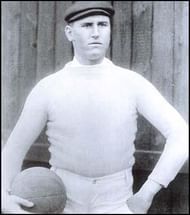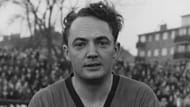We’ve heard about matches being fixed in different sports. But have we heard about match fixing in football?
I for one had never heard of anything as such in English football. However, alleged reports of matches being fixed in football came as a shock, not just to one particular person, but to all those who love this game and relate themselves with it.
Football has always been a game played with immense dedication and hard work, from the physios of a team to the players on the pitch and on the bench. Fixing a game only brings shame to a sport which has found its way into the hearts of people all over the globe, especially in England, where the Football League was founded in the year 1888, which in a way led to the formation of other such football competitions.
The game has already endured its own difficulties; many attempts have been made to ban football games. As a matter of fact, football was banned between 1324 and 1667 in England by local laws and the royals.
Edward of Caernarfon (Edward II), King of England from 1307 to 1327, was troubled by the unruliness of football in London. On 13th April 1314, King Edward II issued a declaration banning football. Edward II is quoted as saying: “Forasmuch as there is great noise in the city caused by hustling over large balls from which many evils may arise which God forbid; we command and forbid, on behalf of the King, on pain of imprisonment, such game to be used in the city in the future.”
However, the game was not stopped and by the 18th century, sports clubs started playing football. Having already endured such difficulties, the game of football needs to resolve the fixing issue as soon as possible.
History of Match Fixing in English Football
Fixing in football started as early as the 19th century. Promotion and relegation between two divisions of the Football League were decided through a play off during the years 1893 to 1898. These play-offs were known as ‘test matches’. It started off as a match between two clubs, but was reformatted in the year 1896 and made into a round robin format.
A controversy ensued in the year 1898 when, because of the early results, two teams knew that a draw in the match between them would result in a promotion of both the teams. Hence, there were no goals scored and the match ended 0-0. The collusion between the two teams was pretty much evident and they did little to hide that. As a result of this there were a few changes made in terms of the number of teams and the ‘test match’ system was abandoned.
In the following season, Burnley’s Jack Hillman attempted to offer £2 each to the Nottingham Forest players to ‘take it easy’, and Hillman was handed a one year suspension for his actions.
This is just the beginning
Manchester City’s Billy Meredith was accused by Aston Villa’s skipper Alec Leake of offering him £10 to allow City to win the match. The match in question was played four months before the accusations put forward by Alec, and it was played in a bad temper from both the sides in which a lot of fights broke out. This happened on the final day of the 1904-05 season. However, Billy voiced his innocence to the accusations and he was not permitted to put forward his evidence. The Football Association suspended Billy until April 1906.
Later on, during a dispute with Manchester City over his payment during the suspension period, Billy Meredith admitted to the accusations and pressed forward the fact that others were also involved and he was not alone. Billy was quoted as saying: “I was only the spokesman of others equally guilty.”
A decade gone, but the problem persists
Liverpool vs Manchester United, a clash which is widely anticipated even now: Manchester United were battling relegation in the year 1915, and the match interestingly ended 2-0 in Manchester United’s favour. Lot of questions were raised, questioning the commitment of Liverpool players during the match.
Upon completion of the match, out of nowhere, leaflets started to appear, which alleged that a lot of money was at stake through betting and the odds favoured a Manchester United win. As if this was not enough, the leaflet went on to allege the final score of the match as well, and it was the same score at which the match ended, 2-0. Quite a few eyebrows were raised and this led the Football Association to launch an investigation into the matter. Upon investigation it became clear that players from both the teams were instrumental in rigging the match.
Enoch West, Sandy Turnbull and Arthur Whalley from Manchester United and Tom Miller, Jackie Sheldon, Bob Pursell and Thomas Fairfoul from Liverpool were the accused players. Other players were approached as well to take part in this rigging game including Liverpool’s Fred Pagnam, who flatly refused to indulge in such activities.
In fact, Pagnam went on to try and score in the match, but his shot hit the cross bar and the match ended in Manchester United’s favour. Pagnam however didn’t stop there; he went on to testify against the accused in front of the panel in the FA hearing.
In the meantime, Billy Meredith had obtained a transfer to Manchester United. Upon seeing his history in the fixing field, Billy was called for questioning in the same hearing, but he denied being part of the scandal.
All the seven accused players were given life bans in the year 1915. Upon further investigations it was made clear that the players alone were involved in fixing and their club were not part of any of the plans.
Everything seemed to be going well until….
This dates back to the year 1964, 50 years on (well, almost). Everything seemed to be going quite well in the world of football, with no such match fixing incidents coming to light. But in the year 1964, the football world was rocked by another fixing scandal wherein 10 players were jailed for offences related to match fixing. The difference in this sort of fixing, however, was the involvement of the betting element in the game.
The build up to the scandal in 1964 had actually started in the year 1962 when Jimmy Gauld, who played for Mansfield Town, St. Johnstone, Swindon Town and Plymouth Argyle, approached a player from the Sheffield Wednesday team, David Layne. Layne and Gauld were team mates at Swindon Town. Gauld approached Layne to know about a game which he seemed would go in their favour and Layne singled out a particular game in which S. Wednesday were playing Ipswich town. Layne also convinced two other players from his team to ensure the outcome of the match, which went in favour of Ipswich Town. David Layne, Peter Swan and Tony Kay made sure their team lost against Ipswich Town.
Over the year, ‘Gauld’s betting syndicate’ grew, with matches being fixed and a few players being banned for life. In 1963, one of Hartlepool United’s players, Ken Thomson, came forward and confessed to a British tabloid Sunday People that he had placed a bet with Gauld’s syndicate on Hartlepool United’s losing the game against Exeter City. The FA, upon getting this information, imposed a life ban on Ken Thomson.
After having been discovered by the Sunday People, Gauld, in the year 1964, sold his story to the same newspaper for £7000. Gauld went on to implicate the three Sheffield Wednesday players who had fixed their game against Ipswich Town in 1962. Following the release of the story in the newspapers and other press, many players were named and accused of having taken part in fixing matches.
Jimmy Gauld’s taped conversations were used to convict him and other players. Upon release, all the players who were arrested were banned from football and any kind of participation in the game. Gauld received the highest quantum of sentence which was 4 years in prison.
Existence of modern day match fixing
In the year 2008, on the final day of the 2007-08 season, betting patterns were reported around a match between Bury and Accrington Stanley, which Bury went on to win. Considering the unusual betting pattern, the Football Association started an investigation into the incident and the investigation led to five players being charged, out of which four played for Accrington Stanley and one played for Bury. The players were involved in betting for a Bury win. All the players were banned for a particular time period which varied with each player. Each player was also fined £2000 to £5000.
Europol launching an investigation into match fixing
On 4th February 2013, Europol and the police launched an operation, Operation VETO, to investigate match fixing in football. The investigation prioritised on the influence of organised crime syndicates in Asia. A total of 380 football matches, 425 match officials, players and club officials came under the scanner.
Upon investigation, it became clear that the matches that were affected by match fixing were mostly played in the German, Turkish and Swiss leagues. Two World Cup qualifying matches also came under the scanner.
Ekstra Bladet, a Danish newspaper, claimed that a group stage fixture of the UEFA Champions League (2009-10) between Liverpool and Debrecen, where Liverpool won 1-0, was affected by match fixing. However, the Europol declined to give any details about the match in question.
The latest fixing setback
The National Crime Agency (NCA) made several arrests in the month of November and December 2013 on suspicion of fixing in English football matches. The arrests were made after two newspapers carried out investigations into match fixing. The two newspapers which carried out the investigations were Daily Telegraph and Sun on Sunday.
Based on the investigations carried out by the newspaper Sun on Sunday, NCA made a total of six arrests in the month of December. One of the footballers arrested was D J Campbell, who represented Queens Park Rangers (1987-1997) and Aston Villa (1997-2000).
Sam Sodje, who played for Reading FC and Portsmouth FC, made a claim that he could fix footballers for Championship division. Sodje claimed that in order to receive a red card and £70,000, he punched an Oldham Athletic player Jose Baxter twice while playing for Portsmouth in the Football League One.
Sodje made a startling revelation claiming he had plans of fixing matches in the upcoming FIFA World Cup 2014.
These startling revelations show the importance of removing the problem of match fixing in football completely from the roots. The beauty of the game gets affected due to these scandals; people spend their hard earned money to go to a stadium and watch their favourite club or country play and win in a genuine way. But when that fan gets to know about the fixing part in football, what would be the use of spending so much and going to watch a match whose results are premeditated?




